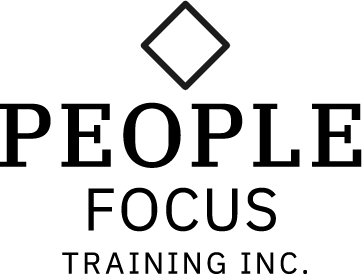Are you feeling overwhelmed by your workload? Or are you burning out?
We lead busy lives, multi-tasking, juggling multiple responsibilities, and often find it hard to disconnect from the 24/7 demands from our devices. This can lead to feelings of being overwhelmed, stressed and burned out.
Self-care is key to surviving and thriving in the stressful world we live in. And it is also important to be able to recognize the danger signs that tell us it's time to take better care of ourselves.
There is a difference between overwhelm and burnout - here's an article on the topic that I wrote for Careerwise - Canada's online source for career development professionals.
I've included the full article below, and also the link to the original publication:
https://careerwise.ceric.ca/2019/10/25/overwhelm-and-burnout-whats-the-difference/
We are time-crunched and over-scheduled, with demands from our work and personal lives that can make us feel overwhelmed. Who hasn’t looked at their to-do list recently and thought “how am I ever going to get it all done?”
Being overwhelmed by mounting workloads can show up in all kinds of ways – from missing deadlines, failing to return phone calls and emails, to running late for meetings. Its effects carry over outside of work, too, with impatience in traffic or grocery store lineups, irritability with our loved ones and an overall feeling of not being able to keep up with the incessant demands on our time.
Dealing with constant change, shifting priorities, high expectations, 24/7 connectivity, and the need to do more with less makes for a stressful workplace. It’s well known that ongoing stress has negative health effects. There’s also an awareness that burnout is a serious concern in the workplace. A recent CareerWise blog post explored the high cost of burnout in helping professions and gave pointers for identifying and coping with burnout.
In a recent survey, nearly all senior managers indicated they believe their employees may be experiencing some level of burnout. In the same survey, most employees reported they were experiencing moderate levels of burnout, and more than one in five reported high levels of burnout.
However, because the terms are sometimes used interchangeably, there may be some confusion between feeling overwhelmed by the demands of your work and actually being burned out. While they are both related to unhealthy levels of stress, there is a difference between overwhelm and burnout.
Here are five ways to tell the difference:
1. Over-engagement vs disengagement
When you’re faced with a challenging work assignment, you’ll likely feel some level of stress. If you’re able to rise to the occasion and focus on the work, then you are probably not burned out. You could feel somewhat overwhelmed, but even so you’re able to direct your energy into achieving the task to the best of your ability. Burnout, on the other hand, is characterized by disengagement; if you are burned out, you will not be able to put forth your best efforts.
2. Over-reactive emotion vs no feeling
When feeling overwhelmed by constant interruptions that make it hard to complete your key responsibilities, you may react with irritation, withdraw from others or have angry outbursts, depending on your personality and coping skills. However, if you are burned out, you are too emotionally exhausted to react. Your emotions have become blunted.
3. Worry vs detachment
Someone who is feeling overwhelmed by their workload and wondering how they will manage to achieve their goals or outcomes may feel worried or anxious and these feelings could spill over into other parts of their life. If someone is burned out, however, they are less likely to worry about the workload or the tasks, because they have become detached from work that was once important to them. They have given up and cannot care enough to worry about the work.
4. “If I can just get everything under control, it will be OK” vs “I don’t see any hope of getting things under control”
If you’re struggling to get everything under control, trying to juggle multiple responsibilities, you may be feeling overwhelmed. But if you are burned out you no longer see any hope of getting things under control. You have lost interest in juggling and have stopped trying because everything seems hopeless.
5. A sense of urgency vs giving up
With important deadlines looming, you may feel a sense of overwhelm and wonder how you will achieve those deadlines. However, if you are spurred on by a sense of urgency and you’re able to focus your energy on the work, you are not burned out. If, on the other hand, you feel unable to muster a sense of urgency, and would rather give up than keep trying, this is a sign of burnout.
How to support a healthy work environment
Both overwhelm and burnout should be taken seriously. If we’re frequently overwhelmed at work, it’s a sign that we’re suffering from too much stress and may indeed be on the path toward burnout. Burnout results from a combination of factors, and overwhelm can be one of them.
By addressing overwhelm at work, we can promote a healthier workplace that supports mental wellness. The benefits to individuals are important and include better health overall and greater peace of mind. The benefits to the organization can include improved teamwork, higher productivity, higher retention rates, and employees who are more grounded and focused on the mission of their work.
On a personal level, we can minimize overwhelm by managing our time more effectively, setting boundaries, prioritizing, becoming aware of the physical signs that we are under too much stress and taking time to care for ourselves.
On an organizational level, management can show support for work-life balance, recognize the role of leadership in promoting a healthy workplace, and – the best strategy of all – commit to creating a workplace where mental well-being is a priority.
Our society has embraced a fast-paced and often stressful lifestyle and it’s unlikely that will change. So, it is up to us to take steps to mitigate the negative effects of stress and to recognize when burnout is on the horizon, for ourselves or our colleagues, so that preventive measures can be taken. Because overwhelm can be an early warning signal of impending burnout, we should all be aware of the signs.

